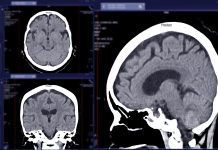Dementia poses a risk to us all, but research shows that there are leisure activities that are scientifically proven to reduce risk of dementia
According to a new meta-analysis, certain leisure activities may lower the risk of dementia.
By reviewing previous studies on the effects of different types of activities and the risk of dementia, researchers were able to examine how activities can lower the risk of dementia.
Various cognitive, physical and social activities, such as yoga, reading a book, and volunteering, can help to keep dementia at bay.
Leisure activities lower cancer risk and reduce atrial fibrillation
Study author Lin Lu, PhD, of Peking University Sixth Hospital in Beijing, China explained: “Previous studies have shown that leisure activities were associated with various health benefits, such as a lower cancer risk, a reduction of atrial fibrillation, and a person’s perception of their own well-being.
“However, there is conflicting evidence of the role of leisure activities in the prevention of dementia. Our research found that leisure activities like making crafts, playing sports or volunteering were linked to a reduced risk of dementia.”
Leisure activities reduce risk of dementia by 17%
By reviewing 38 global studies, researchers set about collecting data. The studies involved more than two million participants who did not have dementia and were followed for a minimum of three years.
Participants provided information on their leisure activities via questionnaires and interviews.
Leisure activities were defined as past times that people engaged in for enjoyment or well-being
Leisure activities were defined as past times that people engaged in for enjoyment or well-being. These activities were divided into mental, physical and social categories.
During these studies, out of the 2,000,000+ participants, 74,700 people developed dementia.
After adjustments were made for factors such as age, sex and education, researchers concluded that on the whole, leisure activities were linked to a reduced risk of dementia.
Specifically, participants who engaged in leisure activities had a 17% lower risk of developing dementia than those who did not engage in leisure activities.
Can mental activities reduce risk of dementia?
It is no surprise that intellectual activities can lower the risk of the decline of brain functioning.
The following activities reduce the risk of dementia by 23%:
- Reading or writing for pleasure
- Watching television
- Listening to the radio
- Playing games
- Practising musical instruments
- Craftwork
Physical activities also lower risk of dementia
Walking, running, swimming, bicycling, using exercise machines, playing sports, yoga, and dancing were all earmarked as great activities to keep the body and mind fit.
The authors of the study concluded that individuals who participated in these activities had a 17% lower risk of dementia.

Social activities to combat the onset of the disease
A third category of leisure activities was also found to be effective in reducing the chances of developing the syndrome. Social activities encompassed hobbies or pastimes that involved communication and connection with other people.
These activities included:
- Going to a class
- Joining a social club
- Volunteering
- Visiting, or being visited by, relatives or friends
- Religious activities
Researchers found that people who participated in these activities had a 7% lower risk of dementia.
What does the future of dementia research look like?
Lu said: “This meta-analysis suggests that being active has benefits, and there are plenty of activities that are easy to incorporate into daily life that may be beneficial to the brain.
Future studies should include larger sample sizes and longer follow-up time
“Our research found that leisure activities may reduce the risk of dementia. Future studies should include larger sample sizes and longer follow-up time to reveal more links between leisure activities and dementia.”
One key limitation of the meta-analysis study was that people had to report their own physical and mental activity which means there may have been instances where participants forgot to report their activities accurately.
This study was published in the online issue of Neurology®, the medical journal of the American Academy of Neurology.








